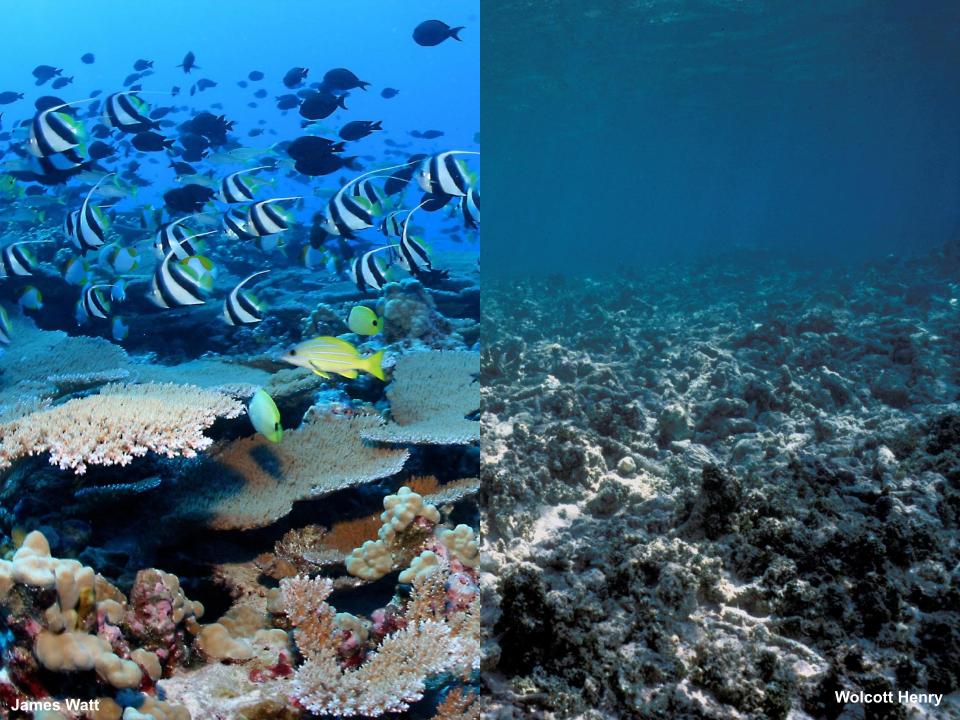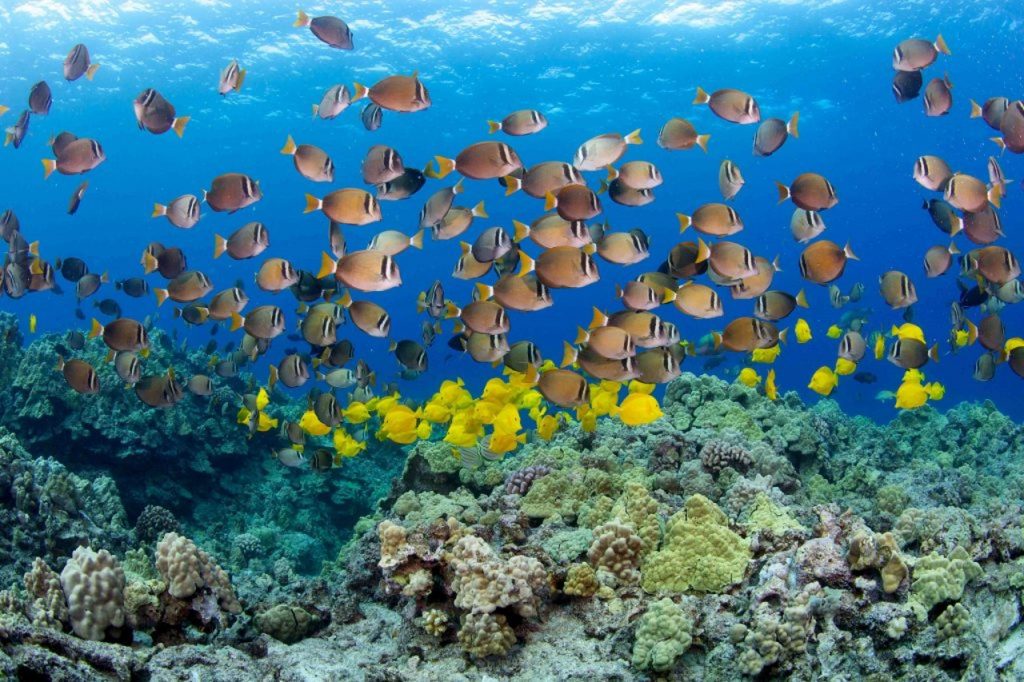New Hawaiʻi organization launches Fish Pono-Save Our Reefs

A local ʻohana of ocean-lovers, scientists, fishers and watermen and women have formed Fish Pono–Save Our Reefs, an organization with the vision of bringing awareness to the importance of replenishing herbivore fish populations to foster healthy coral reefs.
Fish Pono believes that by living pono, in balance with nature, we will ensure healthy reefs, abundant with life for our future ʻohana.
When herbivores — our reef’s lawnmowers — such as uhu (parrotfish), nenue (chubs), kole, manini, kala and other surgeonfish, and sea urchins are in low abundance, coral reefs are overgrown with seaweeds and begin to suffocate and die.
These ever-important lawnmowers, especially the uhu, must be abundant and thriving for seaweeds to remain in check, the corals to survive and flourish, and beaches to get their essential, desperately needed sand (uhu poop sand).

Fish Pono television and radio PSAs feature well-known ocean enthusiasts, including: ambassadors Nainoa Thompson from the Polynesian Voyaging Society and Dr. Randy Kosaki, research ecologist at the Papahānaumokuākea Marine National Monument; waterman and ocean safety expert Brian Keaulana; bodysurfing champion Mark Cunningham; and champion spear fisher Kimi Werner.
The PSAs were filmed around O‘ahu and offer testimony of the importance of saving uhu and coral reefs. They are also at fishpono.org.

“As our islands and world oceans experience serious effects of climate change, including severe coral bleaching, a simple effort of giving uhu and other herbivore fishes a break, taking only what you need to feed your immediate family for that day, will save our coral reefs,” Kosaki said.
“Herbivores allow corals to replenish and grow, and thus save our coastlines and coastal fishing for future generations. Scientists have found that uhu and surgeonfishes are particularly overfished, and highly populated islands like O‘ahu are at less than 5% of their original herbivore fish abundance. Coral reefs are extremely valuable to Hawai‘i, providing subsistence and recreational fishing, coastal protection, surfable waves, tourism, medicines and spiritual connection.”
Fish Pono–Save Our Reefs encourages fishers to consider these important recommendations to help save Hawaiʻi’s reefs:
- Avoid taking many uhu that help keep reefs clean and thriving. Also avoid taking too many other herbivores like chubs, surgeonfish, and sea urchin that play their part in coral reef health as well.
- Fish only what you need to feed yourself and share with your immediate family. Fish for your table not the freezer. By taking only what you need and not what you can, this allows our fisheries to replenish.
- Pass on your knowledge. When you see someone taking too many fish vital for reef health, speak up and honor the opportunity to educate. It’s everyone’s kuleana to fish pono.
- Spread the word. Share how you #FishPonoHawaii on social media and let your friends and family know about our threatened reef ecosystem. There’s no better way to make an impact than to become an active advocate yourself.
- Visit the Fish Pono website for more information: fishpono.org and follow us on social media: Facebook – https://www.facebook.com/fishponohawaii and Instagram – https://www.instagram.com/fishponohawaii/
Sponsored Content
Comments





_1770333123096.webp)


